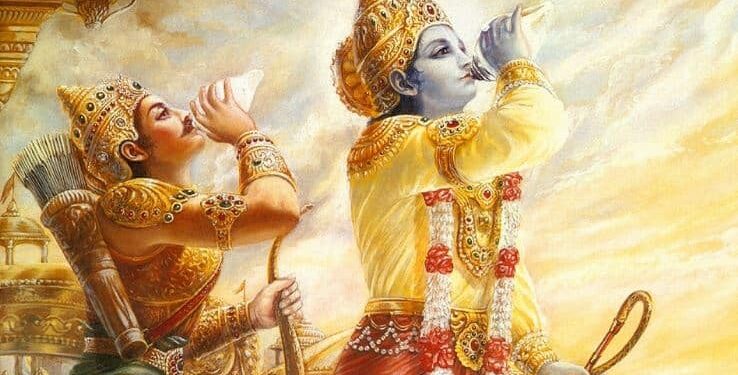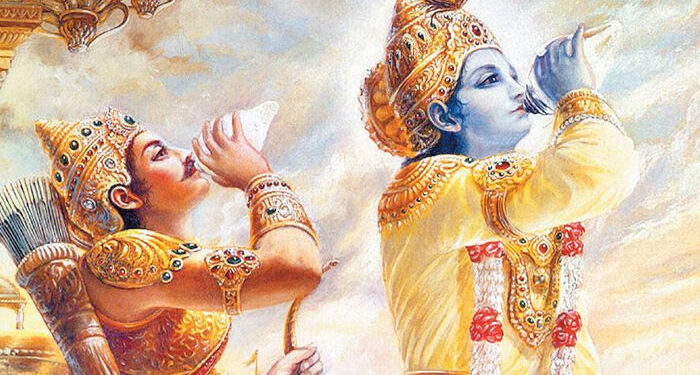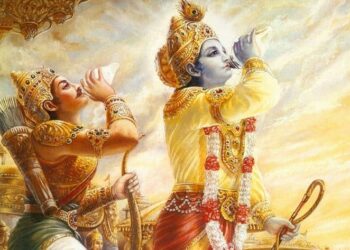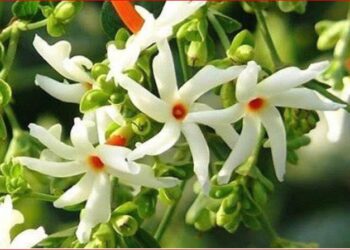TEXT 13
sarva-karmāṇi manasā
sannyasyāste sukhaṁ vaśī
nava-dvāre pure dehī
naiva kurvan na kārayan
SYNONYMS
sarva—all; karmāṇi—activities; manasā—by the mind; sannyasya—giving up; āste—remains; sukham—in happiness; vaśī—one who is controlled; nava-dvāre—in the place where there are nine gates; pure—in the city; dehī—the embodied soul; na—never; eva—certainly; kurvan—doing anything; na—not; kārayan—causing to be done.
TRANSLATION
When the embodied living being controls his nature and mentally renounces all actions, he resides happily in the city of nine gates [the material body], neither working nor causing work to be done.
PURPORT
The embodied soul lives in the city of nine gates. The activities of the body, or the figurative city of the body, are conducted automatically by its particular modes of nature. The soul, although subjecting himself to the conditions of the body, can be beyond those conditions, if he so desires. Owing only to forgetfulness of his superior nature, he identifies with the material body, and therefore suffers. By Kṛṣṇa consciousness, he can revive his real position and thus come out of his embodiment. Therefore, when one takes to Kṛṣṇa consciousness, one at once becomes completely aloof from bodily activities. In such a controlled life, in which his deliberations are changed, he lives happily within the city of nine gates. The nine gates are mentioned as follows:
nava-dvāre pure dehī
haṁso lelāyate bahiḥ
vaśī sarvasya lokasya
sthāvarasya carasya ca
“The Supreme Personality of Godhead, who is living within the body of a living entity, is the controller of all living entities all over the universe. The body consists of nine gates [two eyes, two nostrils, two ears, one mouth, the anus and the genitals]. The living entity in his conditioned stage identifies himself with the body, but when he identifies himself with the Lord within himself, he becomes just as free as the Lord, even while in the body.” (Śvetāśvatara Upaniṣad 3.18)
Therefore, a Kṛṣṇa conscious person is free from both the outer and inner activities of the material body.
TEXT 14
na kartṛtvaṁ na karmāṇi
lokasya sṛjati prabhuḥ
na karma-phala-saṁyogaṁ
svabhāvas tu pravartate
SYNONYMS
na—never; kartṛtvam—proprietorship; na—nor; karmāṇi—activities; lokasya—of the people; sṛjati—creates; prabhuḥ—the master of the city of the body; na—nor; karma-phala—with the results of activities; saṁyogam—connection; svabhāvaḥ—the modes of material nature; tu—but; pravartate—act.
TRANSLATION
The embodied spirit, master of the city of his body, does not create activities, nor does he induce people to act, nor does he create the fruits of action. All this is enacted by the modes of material nature.
PURPORT
The living entity, as will be explained in the Seventh Chapter, is one of the energies or natures of the Supreme Lord but is distinct from matter, which is another nature—called inferior—of the Lord. Somehow the superior nature, the living entity, has been in contact with material nature since time immemorial. The temporary body or material dwelling place which he obtains is the cause of varieties of activities and their resultant reactions. Living in such a conditional atmosphere, one suffers the results of the activities of the body by identifying himself (in ignorance) with the body. It is ignorance acquired from time immemorial that is the cause of bodily suffering and distress. As soon as the living entity becomes aloof from the activities of the body, he becomes free from the reactions as well. As long as he is in the city of body, he appears to be the master of it, but actually he is neither its proprietor nor controller of its actions and reactions. He is simply in the midst of the material ocean, struggling for existence. The waves of the ocean are tossing him, and he has no control over them. His best solution is to get out of the water by transcendental Kṛṣṇa consciousness. That alone will save him from all turmoil.



















